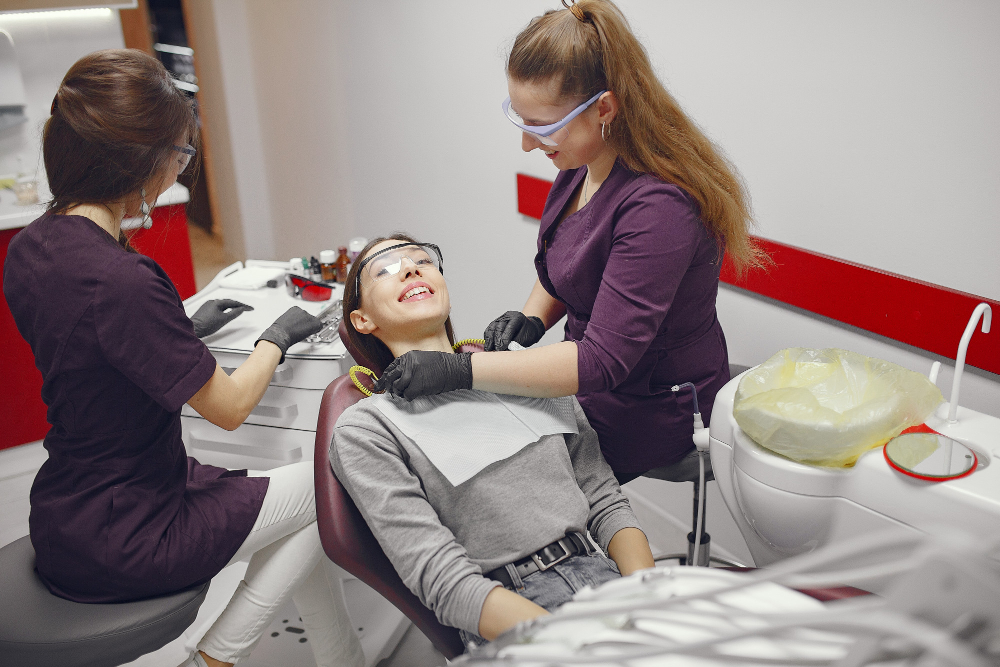Dental emergencies never strike at the right time. The most important thing to know is prevention, whether it is at midnight when you have a toothache or during lunch when you chip a tooth. If you’ve ever caught yourself frantically looking for an emergency dentist near you, then you already know how precious prevention is.
Let’s discuss easy, dentist-recommended tips on how to keep your teeth safe and steer clear of surprise visits to the dental chair.
What Counts As A Dental Emergency?
Before we dive into prevention, it’s good to understand what qualifies as a dental emergency. Here are some common examples:
- Sudden, severe tooth pain
- Knocked-out or broken teeth
- Gum swelling or abscess
- Broken fillings or crowns
- Trauma to the mouth or jaw
- Loose adult teeth
If left untreated, these can lead to infection, worsening pain, or even tooth loss. That’s why it’s important to act fast, but even better to stop them from happening at all.
Smart Habits to Help You Avoid Dental Emergencies
Don’t Miss Your Dental Checkups
Routine check-ups and cleanings catch small problems before they become large ones. Your dentist near Glenbrook can detect signs of decay, cracked teeth, or gum disease early and take appropriate action.
Be Mindful of What You Eat
Hard candies, popcorn seeds, ice, and even some nuts have the potential to chip or crack your teeth. Steer clear of biting down on something too hard. And never use your teeth as a tool, don’t try to open packages or bottles with them.
Wear A Mouthguard
If you clench your teeth at night or play contact sports, you require a mouthguard. It will keep your teeth from chipping and wearing down, and that will decrease your risk of an emergency significantly.
Address Dental Pain Early
A toothache is your body’s way of indicating something’s wrong. Taking too long to get it treated can result in emergency teeth pain, infections, or more complicated treatment.
If something doesn’t feel right, get it checked out right away.
Common Mistakes That Lead to Dental Emergencies
Some emergencies are accidents, but others are avoidable. Here are common habits to break:
- Ignoring minor tooth sensitivity
- Skipping flossing or brushing
- Chewing on pens or fingernails
- Using teeth to cut or open things
- Not replacing worn-down dental work
Making small changes to these habits can go a long way in protecting your teeth.
What to Do If A Dental Emergency Happens?
Even with the best prevention, an emergency may still occur. If so:
- For a knocked-out tooth: Soak the tooth (place it in milk or in your mouth) and get to the dentist in 30 minutes.
- For intense pain or swelling: Use over-the-counter pain relievers and rinse with warm salt water.
- For a broken or cracked tooth: Rinse your mouth and do not chew on the side until you receive treatment.
Having a dentist that takes emergencies immediately will be the difference between the world and your tooth and your pain.
Prevention Begins With Awareness
Preventing dental emergencies is simply a matter of doing the right things prior to them occurring. Basic every-day routines, such as brushing your teeth twice daily, flossing, and regular visits to your dentist, provide your smile with a strong defense.
And if you clench your teeth, fear competition, or have a history of dental problems, speak with your dentist about personalized prevention. The earlier you take a proactive approach, the less likely you are to run into emergency care.
A Little Care Today Prevents A Lot Tomorrow!
Unexpected dental issues needn’t stop your life in its tracks. Get back in control of your gums and teeth by arranging your next appointment at Montreux Dental Clinic today, as a healthy, stress-free smile starts with smart prevention and timely care.

